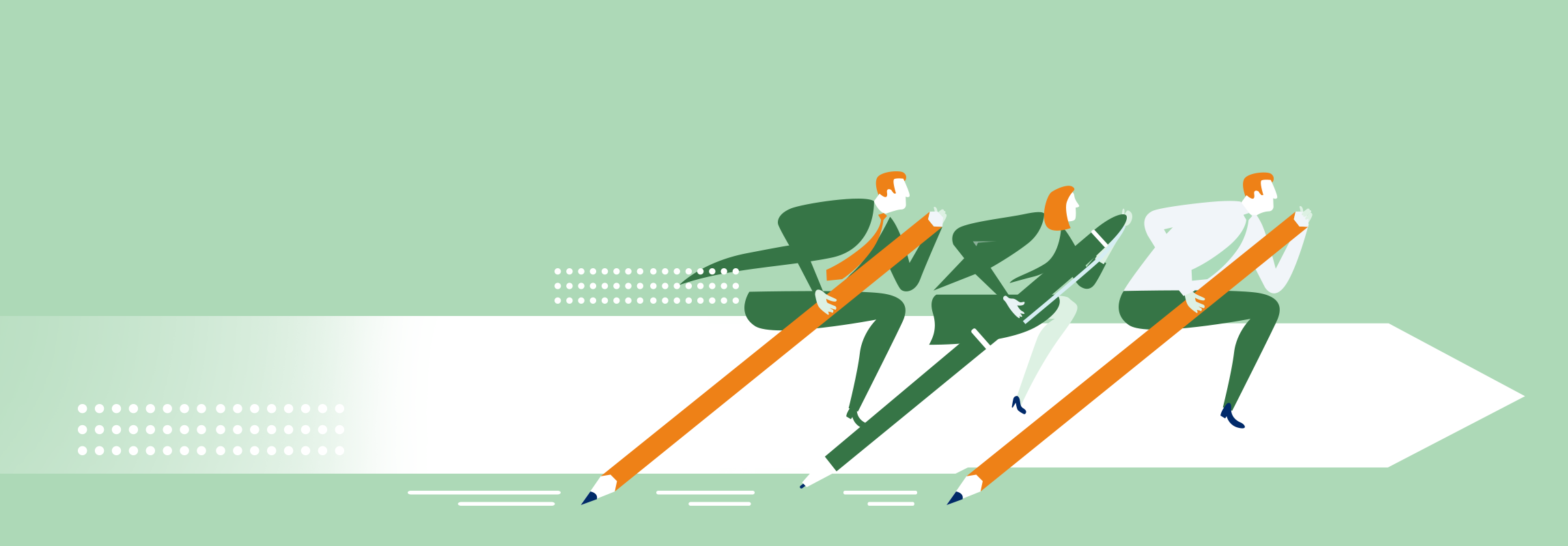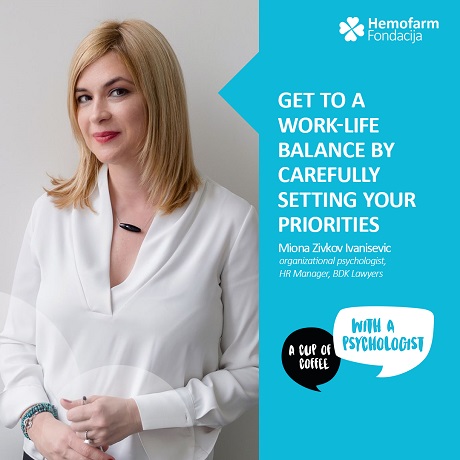
10/09/2020
Achieving Work-Life Balance by Carefully Choosing Priorities
Miona Živkov Ivanišević
organizational psychologist, HR Manager, BDK Lawyers
Achieving Work-Life Balance by Carefully Choosing Priorities
The balance between private and business life looks different, and it should look different, depending on what is more important to us in which period of life.
There is a period during which we are more focused on career or personal development and a period during which we shift our focus to family, friends or hobbies. Since the outbreak of the COVID-19 pandemic, there have been few places and people on the planet who have not been "derailed." In the spring of 2020, a pandemic led us to shut ourselves in our homes and work from them. Working from home, relying on technology was advised in all companies around the world, because most of them closed the doors of their offices. Our initial desire to participate in resolving the crisis or to contribute somehow, as well as the desire for self-improvement, learning or developing ourselves, has now been replaced by overwhelming fatigue. Not only fatigue but also feelings of irritation and exclusion that arise from not knowing what awaits us contribute to this condition. "COVID fatigue" also affected those who remained stuck in the plans, in their limbo, because everything they had planned was interrupted, and it is not known when it can be accomplished.
For those who work from home, there is no natural break from work, the working day can start when they brush their teeth, and last until they brush their teeth again to go to sleep. Such a way of working means tearing down the line between work and home and free time, precisely because it is in the same environment. According to data from the Office for National Statistics (ONS) in Britain, about 6.8 million employees worked from home during the pandemic peak. The remaining 1.6 million are people who have jobs that cannot be done from home, such as repairmen, artisans, sales personnel, medical staff, delivery people. Serbia ranks high globally in terms of the number of people who work from home. In our research conducted by the
Startit portal, a third of employees want to work from home after COVID, and the majority wanting to return to their offices say that they miss their colleagues and social contacts - "There comes a time when even introverts want to they see another human being." (This is how they tried to describe that need😊). As most employees choose to stay and work from home, it is important that they do not slip into burnout, and to strive for balance.
Since the daily routine has changed for most of them, the most useful advice from psychotherapists and organizational psychologists are:
• Take breaks while working from home, devise them and determine what is the best time for them. It is recommended that a break should be taken after a part of work is finished. Breaks make people more productive.
• During the break, do not answer the phone, do not use social networks, because it is a short period, and you will contact your colleagues when you are done. You can let them know that you will always answer after the break.
• Be sure to move because by being deprived of coming to work and leaving work, you are in fact deprived of relaxation and sorting out impressions. Although most people see this part of coming - going to work, as saving time, and perhaps money, we should not ignore the fact that this is an important period of the day when we gradually distance ourselves from private obligations. Coming to work from private obligations, and leaving work from the work itself. That is why taking some short time for walking, running, cycling is necessary to maintain balance and compensate for the time of going and coming to work.
• Give yourself time for a symbolic moment of celebration after the job is done. It marks the moment when the business goes off, at least for a while. You can mark this ritual with a drink, food, changing clothes or taking a shower.
• Spent time in company of other people during social distancing because it is very important and affects human satisfaction.
It is certainly up to us to think and make a choice about how we will shape our working day and work, and to get from it more of what we strive for, and that is time.
It is necessary to carefully consider and adjust priorities in a given phase of life, ask yourself a difficult question and make a difficult decision, and certainly do what makes our lives easier and what makes us feel peaceful. We should try not to feel anxious, torn, panicked and upset. So if we are in a situation where we feel overwhelmed by work and events or that everything has stopped, and there is nothing we can do about it, it is important not to keep quiet about it, but to start talking or seek help from a psychologist or psychiatrist.
The search for the elusive work-life balance is endless, and perhaps unnecessary. We do not always need it because, as said at the beginning, there are life stages when we create something and then we are drawn by wishes and passion, and accomplishment takes a lot of time. At that time, it is only possible not to be in balance, and as writer Alain de Botton says in his aphorism: “There is no such thing as work-life balance. Everything worth fighting for unbalances your life.”

AUTHOR
Miona Živkov Ivanišević
organizational psychologist, HR Manager, BDK Lawyers